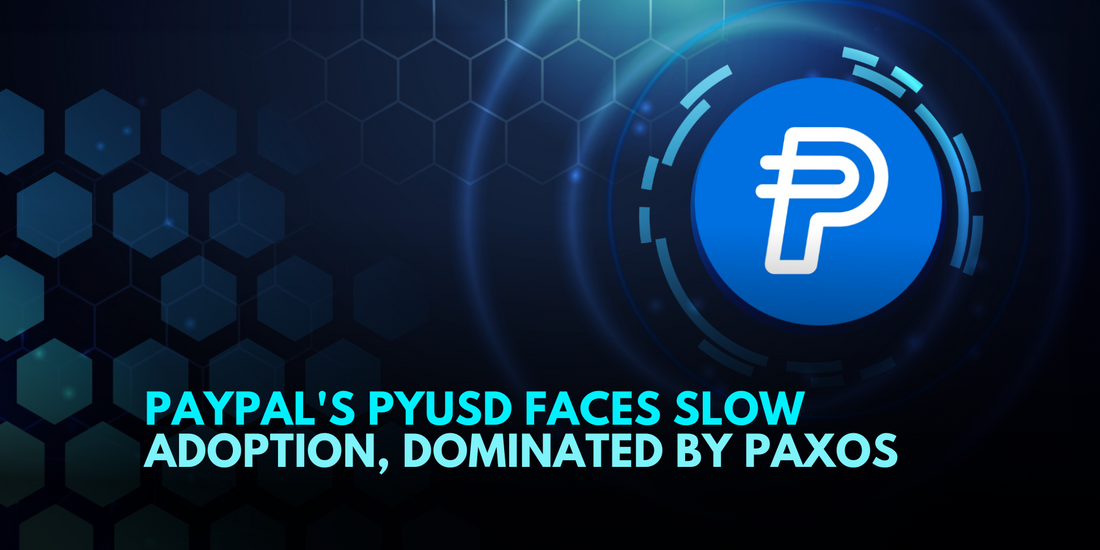PayPal's recently launched stablecoin, PayPal USD (PYUSD), is encountering challenges in gaining widespread adoption, as early on-chain data analysis indicates. Insights from blockchain analytics firm Nansen reveal that approximately 90% of the total PYUSD supply is currently held within the wallets of Paxos Trust, the stablecoin's issuer.
Crypto exchange wallets collectively account for almost 7% of the total supply, distributed across platforms such as Kraken, Gate.io, and Crypto.com. Interestingly, "smart money" investors, typically considered well-informed or professional, have displayed minimal interest in PYUSD.
Despite initial excitement within the crypto industry when PayPal introduced its stablecoin in early August, the coin's broader adoption seems to be sluggish. While PayPal boasts a user base of over 350 million globally, only a fraction has engaged with or held the stablecoin in personal wallets during its initial weeks. Nansen's report suggests that this could be due to various factors, including a lack of demand among existing crypto users, potentially owing to PayPal targeting a different demographic.
Decentralized exchanges like Uniswap feature pools involving PYUSD pairs, but the liquidity remains limited, with fewer than 50,000 tokens in circulation. Individual top holders of PYUSD indicate a moderate level of interest, with the largest non-exchange holder possessing less than $10,000 worth of PYUSD. This holder acquired the stablecoin after selling three memecoins, indicating some diversification.
Additionally, data highlights that fewer than 10 non-exchange holders possess balances exceeding $1,000.
While the initial adoption has been modest, it's essential to note that PYUSD has been circulating for less than three weeks. Its launch came as a surprise without any prior announcements.
PayPal's stablecoin, tied to the U.S. dollar, is issued by Paxos Trust Co. It operates on the Ethereum network and is fully backed by dollar deposits, short-term Treasurys, and cash equivalents. The stablecoin's entry into the market sparked a competitive response from established players like Circle, the creator of USD Coin (USDC), which recently expanded to six blockchains to enhance adoption across various networks.
Current data from CoinMarketCap shows USDC's market capitalization at around $25 billion, while Tether (USDT) maintains a significant lead with over $82 billion in market capitalization. Despite the initial hurdles, the success of PYUSD's adoption trajectory remains to be seen as it navigates the complex landscape of stablecoins and user preferences.

